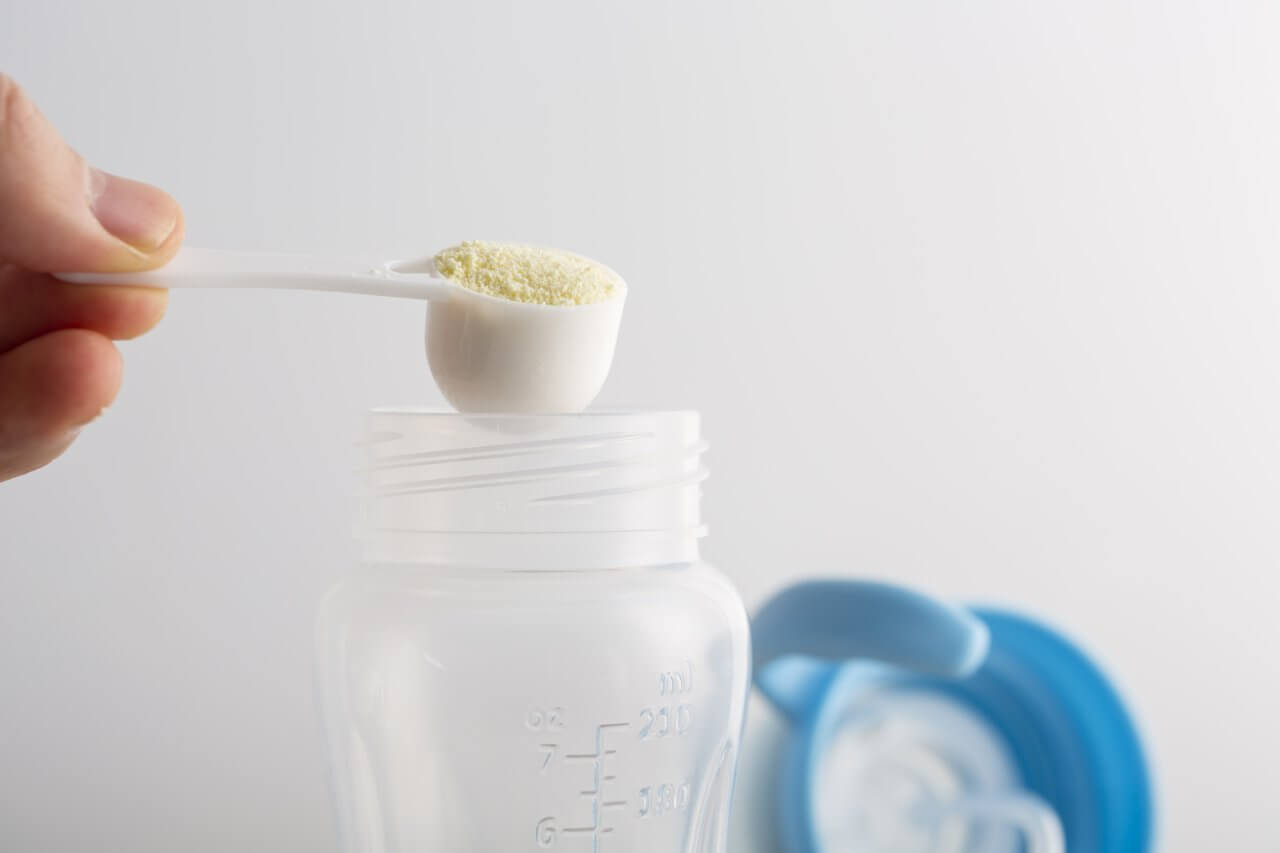Lactation Consultants
Our lactation consultants know the challenges moms commonly face. Let us help you overcome whatever hurdles stand between you and your breastfeeding goals.

Families with young children face a difficult challenge today, with the supply of baby formula dangerously low in many areas around the U.S. Many mothers are responding by breastfeeding longer or for the first time. Not all can nurse their babies, but doctors are increasingly urging those who can to give it a try.
But if you or someone you know needs baby formula and is struggling to find enough, this article provides essential information and advice.
Our lactation consultants know the challenges moms commonly face. Let us help you overcome whatever hurdles stand between you and your breastfeeding goals.
Multiple factors are driving the current baby formula shortage. For one thing, there are not many companies that make baby formula. And those that do must adhere to exact specifications and meet high-quality standards.
Then, the COVID-19 pandemic disrupted supply chains worldwide. On top of that, contamination concerns prompted a recent recall that has affected several baby formula products.
The unprecedented combination of these factors has resulted in far less baby formula on store shelves and parents scrambling to get enough of this essential product. Formula makers are working hard to meet demand, and the government is taking steps to address the crisis. Still, until the supply of baby formula increases, parents and other caregivers will need ways to ensure their babies get enough nutrients.
If the source you usually use for baby formula (grocery store, online provider, etc.) has little or no inventory, try one or more of these strategies:
Getting through this baby formula shortage will require parents to be proactive while demonstrating patience and restraint. That includes knowing what steps you should not take.
In an attempt to stretch their supply of baby formula, some parents have considered adding more water to it. Important: This can harm your baby.
Adding extra water to formula adversely affects the amount of protein and minerals a baby gets. It can also lead to low sodium levels and other problems with electrolytes that can require hospitalization. You must always follow the mixing instructions on your baby formula container.
Some people online say that parents should consider making baby formula using evaporated milk and other components. Doctors advise that you should not feed your baby homemade formula.
While some parents used formula made with evaporated milk many decades ago, that created unnecessary health risks for babies. From contamination to inadequate nutrition, this approach can be harmful. In fact, hospitals have reported that they’ve admitted babies who developed severe health problems due to consuming homemade formula.
There’s no way for you to know whether breast milk obtained directly from a friend or someone else is safe for your baby. Instead, you should look for a local milk bank. The Human Milk Banking Association of North America is a trusted source of information on local milk banks.
There are many different baby formula recipes created to address various health needs. For example, there are versions for premature babies, toddlers, etc. If you’ve exhausted all other options, you may be able to give one of these versions to your full-term baby. However, you should talk with your pediatrician first about your baby’s health and nutrition needs.
The same advice applies to feeding a baby cow’s milk, goat milk, plant-based milk, or anything other than standard baby formula. Cow’s milk may be acceptable for a short period (a week or less) for a child older than six months. But you should consult your pediatrician. Doctors do not recommend liquid goat’s milk (as opposed to goat milk-based baby formula) or plant-based milk for babies.
You can feed your baby the same formula from a different manufacturer. Typically, this works fine, and babies have no problem with the change. If your baby doesn’t tolerate the new formula well or doesn’t seem to like the taste, you should blend their current formula with the new type, gradually increasing the percentage of the new type.
And be aware that it may take a little time for your baby to adjust to the new formula. However, contact your pediatrician if you have any questions or concerns about the switch.
If the U.S. government has deemed formula imported from another country safe, you can feed it to your baby without concerns.
Abbott, the maker of Similac, is providing limited quantities of specialty formulas for babies with urgent needs. Contact your pediatrician and ask that they fill out a request for you. If Abbott approves the request, they’ll ship the formula to your home.
In response to the baby formula shortage, most states are allowing parents who participate in the WIC program to purchase other types of formula if the kind carried by the program is unavailable.
Babies typically are ready to start on solid foods at around six months. However, you have to ensure they’re getting all the nutrients they need. You should talk with your pediatrician about when and how to make the switch.
At Baptist Health, we understand how stressful this baby formula shortage is. Contact your Baptist Health pediatrician for support if needed. Find a Baptist Health pediatrician to provide suggestions and strategies for ensuring your child gets proper nutrition.